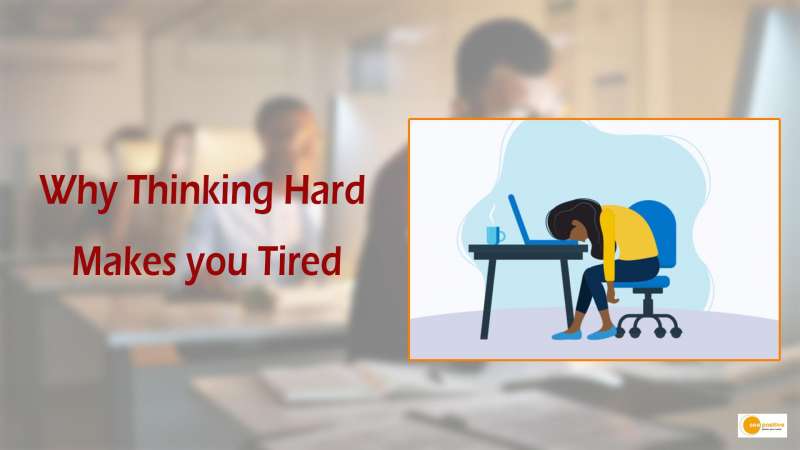

Researchers have discovered new evidence that explains why intense thinking causes people to feel mentally exhausted rather than drowsy.
Their findings, published in Current Biology, show that when intense cognitive work is performed for an extended period of time, potentially toxic byproducts accumulate in the prefrontal cortex of the brain.
As cognitive fatigue sets in, this alters your control over decisions, causing you to gravitate toward low-cost actions that require no effort or waiting, according to the researchers.
Fatigue is sort of illusion cooked up by brain
According to Mathias Pessiglione of Pitie-Salpetriere University in Paris, France, “influential theories suggested that fatigue is a sort of illusion cooked up by the brain to make us stop whatever we are doing and turn to a more gratifying activity. However, our findings show that cognitive work causes a true functional alteration—the accumulation of noxious substances—so fatigue would be a signal that causes us to stop working, but for a different reason: to preserve the integrity of brain functioning.”
Pessiglione and colleagues, including the study’s first author, Antonius Wiehler, wanted to learn more about mental fatigue. Machines can compute indefinitely, but the brain cannot. They were curious as to why. They suspected it was due to the need to recycle potentially toxic substances produced by neural activity.
Magnetic resonance spectroscopy
They used magnetic resonance spectroscopy (MRS) to monitor brain chemistry over the course of a workday to look for evidence of this. They studied two groups of people: those who had to think hard and those who had relatively simple cognitive tasks.
Only in the group doing hard work did they notice signs of fatigue, such as decreased pupil dilation. Those in that group also exhibited a shift in their preferences toward options that promised rewards in a short period of time with little effort. They also had higher levels of glutamate in prefrontal cortex synapses, which was critical.
Together with previous research, the authors claim that glutamate accumulation makes further activation of the prefrontal cortex more expensive, making cognitive control more difficult after a mentally demanding workday.


